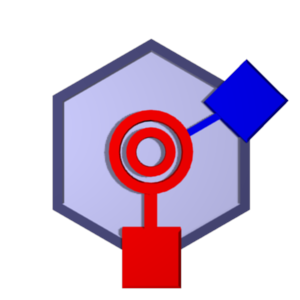 Most people my age have been schooled with the "sit and listen" method. But today's teachers are breaking out of that mold by tailoring lesson plans for different learning styles using gaming ideas and platforms. So to better understand this shift in education, I am taking a summer class offered through Boise State that focuses on this new teaching approach. The course is built on 3D GameLab, "an online, quest-based platform" that can be used to develop training courses. My purpose in taking the class is to develop education-based skills and to understand how best to leverage a game-based approach to learning. And my goal is to use these skills and this knowledge to develop training resources for professionals in public works and for citizens.
Most people my age have been schooled with the "sit and listen" method. But today's teachers are breaking out of that mold by tailoring lesson plans for different learning styles using gaming ideas and platforms. So to better understand this shift in education, I am taking a summer class offered through Boise State that focuses on this new teaching approach. The course is built on 3D GameLab, "an online, quest-based platform" that can be used to develop training courses. My purpose in taking the class is to develop education-based skills and to understand how best to leverage a game-based approach to learning. And my goal is to use these skills and this knowledge to develop training resources for professionals in public works and for citizens.
So why are educators embracing gaming as a teaching method, and why do I believe this can be leveraged for professional training? Game developers have figured out some critical elements of human nature. They are leveraging the fact that we can be motivated with the right environment and incentives to complete a set of assigned tasks. And this motivation can be so great that for some it borders on addiction. Imagine how many employers would be interested in learning this secret, particularly because the exchange of money is in the reverse – players are not expecting money to play and instead give up their money to game.
I've embedded a video at the end of this post that explores the effect games have had on our lives. Some of the insights shared in this talk discuss the ability of games to drive or elicit emotion in a player. This is accomplished through the game environment, the framework of the game, the story within the game, and the tasks assigned. Done well, all these elements combine to grab the player, pull him into the game, and drive his emotion. And because the purpose is to keep the player coming back, those emotions are not designed to be negative. Instead they are set up to create the most epic, incredible emotions that can be felt.
To successfully gamify training in our field, we need to capture these components along with elements from our industry and apply them to our courses. The environment and tasks that make up our workplace are probably the easiest to translate into this method. However finding our story and weaving it throughout the training session and into each task is more challenging. The same approach and challenges exist for developing civic courses for citizens. And in each, a successful course will be dependent on the ability to bring the player into the game, encourage them to accept and become a part of the story, and develop the confidence, skills, and engagement necessary to achieve epic wins in the game and in "real life." And have them return for more.
(The symbol at the beginning of the post is one of many that can be generated at the BrainHex website. Anyone can visit the site and take a quick test to see what gameplay behaviour they exhibit.)


